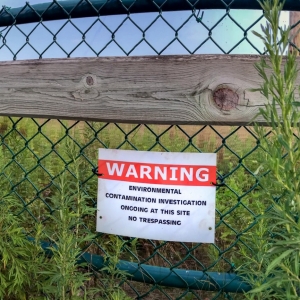The Stream, June 15, 2021: U.S. Water And Power Systems Vulnerable to Cyberattacks
YOUR GLOBAL RUNDOWN
- A lack of funding and attention from the federal government has left water and power systems in the United States increasingly vulnerable to cyberattacks.
- Swiss voters reject proposals to mitigate impacts of climate change and improve drinking water.
- A Michigan city applies for funding to remove more than 1,000 lead service lines.
- A new report finds the Canadian province of Ontario loses millions of gallons of clean water every day due to leaky pipes.
A coalition of rural South African residents are fighting for clean water after years of infrastructure projects weren’t finished by the federal government.
“With Covid-19, we have been told to keep washing our hands regularly but how can we do that when we don’t have clean water? Children are even more at risk because, unlike us, they just drink the water without thinking about the risk it poses to their health.” – Elinah Mahlangu, who lives in the impoverished Verena C village in Mpumalanga, South Africa. Mail & Guardian reports that after years of incomplete water supply projects that cost nearly 2 billion rand ($1.5 billion), a coalition of rural residents in Verena C and surrounding farming communities representing around 10,000 households are exploring alternative ways of accessing clean drinking water. The coalition has appealed to the Human Rights Campaign to intervene, and the organization responded saying they are finalizing a report on water quality in the region. Preliminary findings, according to Mpumalanga human rights commissioner Eric Mokonyama, found the municipality was in “tatters.”
IN RECENT WATER NEWS
In Case You Missed It:
HotSpots H2O: Farmer-Herder Violence in Nigeria’s Middle Belt Persists, a Consequence of Drought and Climate Change – Nigeria’s central states, a region referred to as the Middle Belt, have been overwhelmed by violence for the better part of a decade.
What’s Up With Water – June 14, 2021 – This week’s episode covers new findings from an investigation of a destructive landslide in northern India last year, a rural Canadian community’s fight for clean drinking water, and an airborne pollution monitoring program that found traces of PFAS chemicals in rain samples from the Great Lakes region.
Swiss Voters Reject Proposals To Mitigate Impacts of Climate Change, Improve Drinking Water
Voters in Switzerland rejected climate change and drinking water quality proposals over the weekend, the Associated Press reports. A proposal that would have strengthened existing laws aimed at reducing CO2 emissions by 2030 was rejected by 51 percent of the vote, according to exit polls on Sunday. Voters also rejected a proposal that aimed to improve drinking water quality by making it harder for farmers who used some types of pesticides and antibiotics to get state subsidies.
TODAY’S TOP WATER STORIES, TOLD IN NUMBERS
$3 MILLION
The city of Coldwater, Michigan, applied for a $3 million grant to replace the town’s 1,291 lead service lines, The Daily Reporter reports. The move is an attempt to comply with new state mandates that require full removal of lead service lines in the next 20 years.
103 MILLION LITERS PER DAY
A report from the Residential and Civil Construction Alliance of Ontario found that the Canadian province loses 103 million liters (27.2 million gallons) of clean water every day due to leaky pipes, CBC reports. Aging pipes raise the average household’s water utility bill by a third each month, according to the 56-page report. The assessment analyzed infrastructure problems within Ontario’s 444 municipalities, not including Indigenous communities, which have dealt with longstanding drinking water challenges.
ON THE RADAR
Water and power systems in the United States are increasingly vulnerable to cyberattacks, Bloomberg reports. The threat of cyberattacks has been known for decades, although company costs and government indifference have led to a lack of action. Much of the technology operating the infrastructure is too old for sophisticated cybersecurity tools. Network administrators fear updating their systems could be worse by increasing the network’s exposure to hackers.
- In context: Water Sector Prepares For Cyberattacks
Jane is a Communications Associate for Circle of Blue. She writes The Stream and has covered domestic and international water issues for Circle of Blue. She is a recent graduate of Grand Valley State University, where she studied Multimedia Journalism and Women, Gender and Sexuality Studies. During her time at Grand Valley, she was the host of the Community Service Learning Center podcast Be the Change. Currently based in Grand Rapids, Michigan, Jane enjoys listening to music, reading and spending time outdoors.






Leave a Reply
Want to join the discussion?Feel free to contribute!